第26章 A CHAPTER IN CHILDREN'S LIBRARIES(2)
Then followed the task of selecting a librarian,and the obvious choice was Mr.Dexter,a hatter by trade and already in charge of the West Cambridge Social Library.This was a subscription library,founded in 1807,and consisting mainly of volumes of sermons and "serious reading."The question of the librarian's salary was the next care,for the state law authorizing towns to appropriate tax money for libraries was yet ten years in the future.At town meeting,in 1837,however,one of the trustees called attention to the clause in Dr.Learned's will which provided that others,beside children,might use the library by paying a sum for membership and an annual assessment."Why should not the town pay the tax,and thus make it free to all the inhabitants?"he asked.And this was done.The town at once appropriated thirty dollars for the library,and the right to take books was extended to all the families in town.From this time the institution has been a free town library,the earliest of its class in Massachusetts.
The little collection of books for the West Cambridge Juvenile Library traveled to its first home on a wheelbarrow."Uncle"Dexter would make hats during the week,and on Saturday afternoons open the library for the children.Three books were the limit for a family,and they could be retained for thirty days.That the books were actually read by the children is vouched for by those who remember the library from its beginning.
Even free access to the shelves was permitted for a while.But we come to a period,later,when the by-laws declare,"No person except the librarian shall remove a book from the shelves."One would like to know just what those books were for which one-half of that precious bequest was first spent.The earliest extant catalog of the juvenile library is dated 1855,though there exists an earlier list (1835)of the Social Library.
Tradition has handed down the names of two books said to be in the first collection,but one of these is certainly of later date.The first is still in existence,a copy of the "History of Corsica,"by James Boswell.One who as a boy read this book,years ago,in the West Cambridge Juvenile Library,recalled it with delight when he visited Corsica years afterward.
The other title,mentioned as belonging to the first library,is "The history of a London doll."But this delightful child's story,by Richard Hengist Home,was not published until 1846.
Some of the Waverley novels are also remembered as being among the earliest purchases.Of course,we realize that books which "will best promote useful knowledge and the Christian virtues"in school children are not necessarily children's books.So we may be tolerably sure that Rollins'and Robertson's histories,as well as Goldsmith and Irving,would have appeared in the catalog had there been one.
The juvenile library remained a year in its first home,the frame house still standing near the railroad which runs through Arlington.There have been five library homes since then,including the meeting house,where the collection of books was nearly doubled by the addition of the district school libraries and a part of the Social Library.
In 1867the town changed its name to Arlington,discarding the Indian name of Menotomy,by which it was known before its incorporation as West Cambridge.The library then became known as the Arlington Juvenile Library,and,in 1872,its name was formally changed to Arlington Public Library.With the gift of a memorial building,in 1892,the present name,the Robbins Library,was adopted by the town.
It is characteristic of our modern carelessness of what the past has given us,that we have lost sight of this first children's library.Not Brookline in 1890,not New York in 1888,but Arlington in 1835marks the beginning of public library work with children.Here is one public library,with a history stretching back over seventy-five years,which need not apologize for any expenditure in its work with children.Its very being is rooted in one man's thought for the children of the primary schools.Dr.
Learned could think of no better way of repaying the kindnesses done to a boy than by putting books into the hands of other boys and girls.A children's librarian may well be grateful for the memory of this far-seeing friend of children,who held the belief that books may be more than amusement,and that the civic virtues can be nourished by and in a "juvenile library."